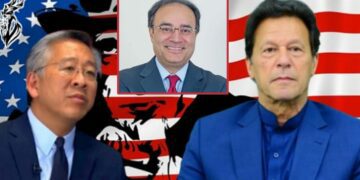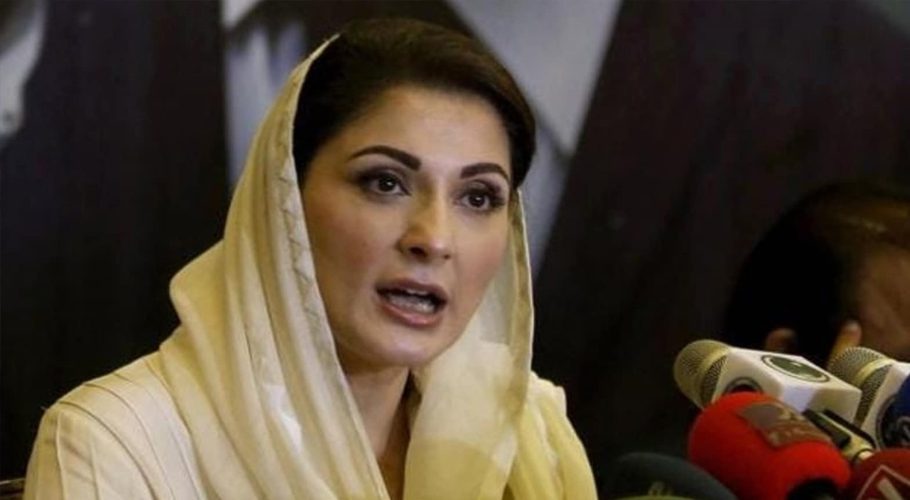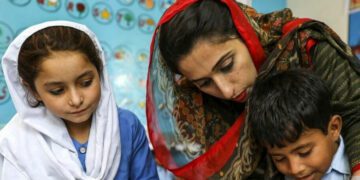![]() Follow Us on Google News
Follow Us on Google News
On October 10, renowned religions scholar Moulana Adil Khan and his driver were killed by unidentified armed men in Karachi.
Police said that when the cleric’s vehicle stopped in front of a busy shopping area, attackers opened fire targeting the driver before firing three bullets that struck Khan’s head, neck and chest.
Khan was rushed to a private hospital where he was pronounced dead upon arrival, said the hospital’s spokesperson Anjum Rizvi. Police said the driver died before reaching Jinnah Post Graduate Medical Center.
Moulana Adil Khan
Adil Khan is the son of late prominent scholar Maulana Saleemullah Khan, who founded the grand seminary, Jamia Farooqia, decades ago.
The seminary adheres to the Sunni Muslim teachings of the Deobandi sect, whose scholars have been the target of killings in the past. Khan held a doctorate in religious studies, received training in his father’s seminary and had taught in Malaysia.
The killing of Maulana Adil Khan was immediately condemned and seen as an attempt to trigger sectarian violence between Sunnis and Shiites in the country.
Concerns of sect-based parties
Pakistan has a history of sectarian enmity between Sunni and Shiite extremists. Attacks by both sides have claimed hundreds of lives, including those of religious scholars.
Showing their concerns over the recent wave of sectarian killings in the metropolis, sect-based religious parties have asked the government to provide security to their leaders and arrest those behind the killings.
Demanding the effective and fair implementation of the National Action Plan, they said that the government had failed to protect the community against people who were openly engaged in sectarian violence.
They termed the recent killings a conspiracy to spoil the peace in the metropolis, saying the lull in the violence and killings had ended.
Several killed in sectarian fighting
Pakistan, one of the largest Muslim countries in the world, has seen serious Shia-Sunni sectarian violence. Almost 80 – 85% of Pakistan’s Muslim population is Sunni, and another 10 – 20% are Shia. However, this Shia minority forms the second-largest Shia population of any country, larger than the Shia majority in Iraq.
In the last two decades, several people were killed in sectarian fighting in Pakistan. More than 4,500 people are estimated to have been killed by Shia-Sunni sectarian attacks in Pakistan from 1987 to 2007.
And since 2008 thousands of Shia have been killed by extremists according to Human Rights Watch (HRW).
One significant aspect of the attacks in Pakistan is that militants often target Sunni and Shia worshipping places during prayers in order to maximize fatalities and to “emphasize the religious dimensions of their attack”.
Human Rights Watch also states that in 2011 and 2012 Pakistan minority groups Hindus, Ahmadi, and Christians “faced unprecedented insecurity and persecution in the country”.
Sectarian violence and Islam
The Holy Quran in Sura Al-Hujarat says, “The believers are but a single brotherhood: so, make peace and reconciliation between your two (contending) brothers; and fear Allah, that you may receive mercy”. Lack of tolerance and the sectarian divide is a misfortune for a society.
It is against the teachings of our religion. Islam basically stands for peace. It prohibits prejudice. It teaches tolerance. Pakistan got independence in 1947 but the tragedy is that the citizens of Pakistan have not yet become a nation.
It becomes a threat to the stability of Pakistan. Its negative impacts are damaging the society on many fronts i.e. psychologically, economically, politically and socially.
Great misunderstanding
The most unfortunate thing is that both the sects involved in violence, claims that they are serving the religion. They target the top leadership of opposing sects, religious scholars and innocent worshippers and claim that they are serving the religion. It has negatively impacted the soі image of Islam.
It is a religion of peace but he growing attacks on sectarian lines have transformed this image into extremist religion.
Is sectarian violence returning again?
Since 2007, Karachi had been an urban epicenter of sectarian violence with militants targeting religious scholars, leaders, doctors and traders on sectarian grounds. At that time, Karachi, Quetta, Gilgit and Kurram Agency were flashpoints of sectarian violence.
Although securities agencies say they are investigating the recent attacks from various angles, they believe that sectarian motive is clearly seen in some of the murders.
The operation against proscribed sectarian groups
Sectarian violence has decreased to a great extent because of the ongoing successful operation against proscribed sectarian groups in the city. It is the reason that Karachi did not witness any significant sectarian attack in 2018.
In the past two years, Karachi has been omitted from the list because of the successful crackdown and a significant decrease in the sectarian killings.
Both groups claim that dozens of their members from Karachi had been picked up by law enforcement agencies and their whereabouts are unknown.
Need to adopt comprehensive ways
Immediately, there is a dire need to adopt comprehensive ways for the development and welfare of the state.
The government should strictly enforce existing bans on militant’s sectarian organizations by establishing train and equip special police force units to track, investigate and arrest members of sectarian organizations.
It is also necessary to Track and eliminate sources of funding for sectarian organizations, especially those originating outside Pakistan.
The government should introduce specific legislation outlawing sectarianism, e.g. Gilgit-Baltistan’s Code of Conduct (May 2012), which bans religious leaders from promoting sectarianism and supporting sectarian organizations.
It also needs to investigate all government officials and politicians accused of maintaining links with sectarian organizations, and disqualify political parties and politicians found guilty of such associations from participating in elections.



























